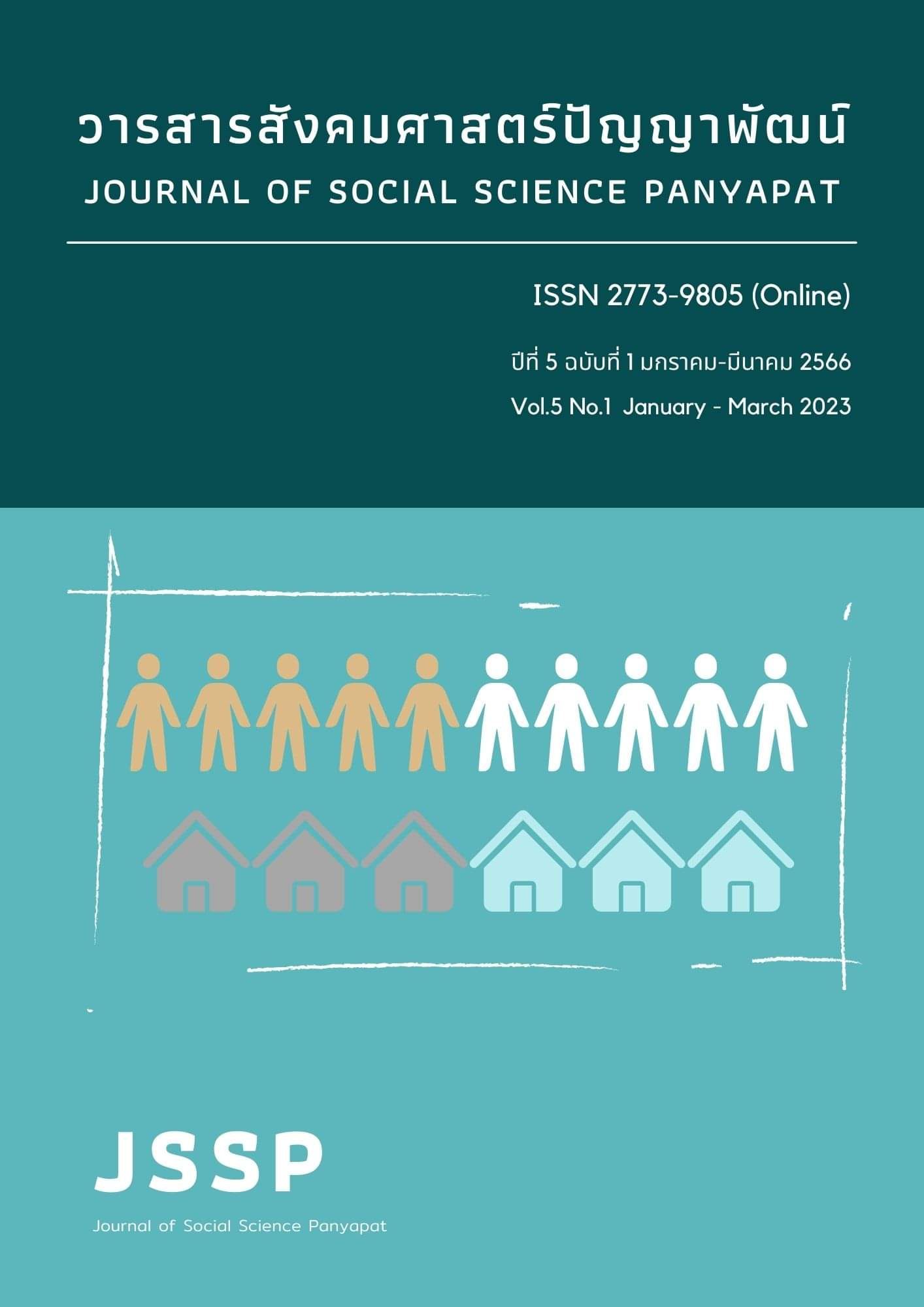The Impact of Covid-19 on the Supply Chain of the Large Companies in the Tuna-Canned Export Industry
Keywords:
COVID-19, Canned Tuna Export, Supply ChainAbstract
This research article aims to (1) study the impact of the COVID-19 situation on the supply chain of a major canned tuna producer and exporter in Thailand and (2) propose guidelines for conducting business to prepare a plan for dealing with risks from similar situations in the future. The research is qualitative and takes the form of a case study, presented from the perspective of an industry outsider. Primary data was collected through an interview with an entrepreneur, along with the collection of secondary data from relevant sources. The study's results indicate that large canned tuna exporters continue to be impacted by the pandemic. This includes a decline in the number of raw tuna sellers, particularly in Japan, as well as disruptions in raw material import channels. In addition, the export of products to foreign countries has been delayed, and they must now be distributed to regional ports far from the manufacturing plant. Office personnel must adjust to working remotely, while manufacturing workers must limit the number of people entering the work area. Moreover, entrepreneurs are facing increased costs in managing activities to prevent COVID-19, including providing space for storing ready-to-ship goods, reducing the number of working hours for terminal staff, and addressing the shortage of containers. Finally, production planning activities are increasingly relying on technology to replace human labor. Based on the synthesis of interview data and secondary data, we can suggest ways to prepare a plan for dealing with risks that may arise from situations similar to COVID-19. One way is to establish an industry association or create partnerships to help members in emergency situations. Such an association could focus on planning to adjust working patterns through online channels and consider reducing dependence on human labor. This would require an emphasis on the introduction of machinery and artificial intelligence technology to play a greater role in the activities of business processes.
References
กรมประมง. (2564). การค้าสินค้าประมงของไทยในรอบ 10 ปี (2555–2564). กรุงเทพฯ: กรมประมง
กระทรวงสาธารณสุข. (2565). แผนและมาตรการบริหารจัดการสถานการณ์โรคโควิด 19 สู่โรคประจำถิ่น. กรุงเทพฯ: สำนักงานปลัดกระทรวงสาธารณสุข
ชนิกานต์ ธนูพิทักษ์. (2556). การปฏิบัติตามแนวทางในการป้องกันปัญหาการใช้แรงงานเด็กและแรงงานบังคับของประเทศไทยเพื่อส่งออกสินค้าไปสหรัฐอเมริกา: กรณีศึกษาอุตสาหกรรมปลาทูน่ากระป๋อง. Journal of Social Research, 36(2), 159-213.
นวฤทธิ์ ตุ้มม่วง. (2563). ผลกระทบและการปรับตัวในการดำเนินธุรกิจส่งออกดอกกล้วยไม้ของบริษัทแห่งหนึ่งในจังหวัดราชบุรีหลังสถานการณ์การระบาดของโรคติดเชื้อไวรัสโคโรนา 2019 (COVID-19). (ศิลปศาสตรมหาบัณฑิต, มหาวิทยาลัยศิลปากร).
พีรธัช ถนอมจิตร์. (2564). การวิเคราะห์การส่งออกและความสามารถในการแข่งขันปลาทูน่ากระป๋องของประเทศไทยไปยังตลาดประเทศสำคัญ. (เศรษฐศาสตรมหาบัณฑิต, มหาวิทยาลัยเชียงใหม่).
ศักดิ์ดา ศิริภัทรโสภณ. (2563). โรคระบาดไวรัสโคโรนาสายพันธุ์ใหม่ (COVID-19): ผลกระทบต่อวิสาหกิจขนาดกลางและขนาดย่อมของไทยและกลยุทธ์ในการฟื้นฟูกิจการ. วารสารสมาคมนักวิจัย, 25(2), 9–25.
ศิระประภา เอื้อวิวัฒน์สกุล. (2563). ผลกระทบและทิศทางของภาคอุตสาหกรรมหลังสถานกาณณ์การแพร่ระบาดของเชื้อไวรัสโควิด-19. กรุงเทพฯ: กองวิจัยเศรษฐกิจอุตสาหกรรม
ศิริลักษณ์ โชคชี้ชัย. (2558). การวิเคราะห์ความสามารถในการส่งออกปลาทูน่ากระป๋องของประเทศไทยไปประเทศสหรัฐอเมริกา. (เศรษฐศาสตรมหาบัณฑิต, มหาวิทยาลัยเกษตรศาสตร์).
สมาคมอุตสาหกรรมทูน่าไทย. (2563). รายงานการประชุมสามัญประจำปี 2563 สมาคมอุตสาหกรรมทูน่าไทย. สืบค้น 3 ธันวาคม 2565. จาก https://thaituna.org/main/downloads/annual-general-meeting/.
สมาคมอุตสาหกรรมทูน่าไทย. (2564). รายงานการประชุมสามัญประจำปี 2564 สมาคมอุตสาหกรรมทูน่าไทย. สืบค้น 3 ธันวาคม 2565. จาก https://thaituna.org/main/downloads/annual-general-meeting/.
สิริมา ศรีสวัสดิ์. (2565). การคัดเลือกและจัดลำดับความสำคัญของปัจจัยเสี่ยงบนห่วงโซ่อุปทานในอุตสาหกรรมปลาทูน่าประเทสไทยภายใต้สถาพแวดล้อมที่คลุมเครือ. วารสารปัญญาภิวัฒน์, 14(2), 104–117.
อิสระ ชาญราชกิจ และคณะ. (2563). ผลกระทบวิกฤตโควิด19 ชาวประมงพื้นบ้านปรับตัวอย่างไร. กรุงเทพฯ: ศูนย์พัฒนาการประมงแห่งเอเชียตะวันออกเฉียงใต้.
Braun, V., & Clarke, V. (2006). Using thematic analysis in psychology. Qualitative Research in Psychology, 3(2), 77-101.
Sumner, A., Hoy, C., & Ortiz-Juarez, E. (2020). Estimates of the Impact of COVID-19 on Global Poverty (No. 2020/43). Helsinki: WIDER working paper.
Downloads
Published
How to Cite
Issue
Section
License
Copyright (c) 2023 Journal of Social Science Panyapat

This work is licensed under a Creative Commons Attribution-NonCommercial-NoDerivatives 4.0 International License.


